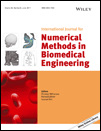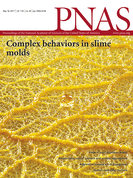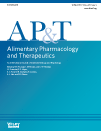 After issuing a retraction notice May 30 for a biomedical engineering paper, the journal has since pulled the notice, citing “a potential problem.”
After issuing a retraction notice May 30 for a biomedical engineering paper, the journal has since pulled the notice, citing “a potential problem.”
After doing some digging, we’ve learned more about the “potential problem.”
Apparently, the retraction was requested by Nanyang Technological University (NTU) in Singapore. NTU has been investigating the first author for months, after it received an allegation about an unrelated manuscript. As a result, NTU terminated first author Hamidreza Namazi‘s contract as a research fellow earlier this year.
As part of the investigation, NTU began to look at Namazi’s other papers, and discovered several with potential problems — including this one, which NTU believes did not receive proper ethical approvals. So it contacted the journal to raise its concerns.
Namazi, however, told us that he and his colleague obtained approval from another organization, but didn’t make that clear in the paper — so the journal has retracted its retraction notice while it investigates Namazi’s claim.
In place of the original retraction notice, a notice now reads:
Continue reading A retraction gets retracted — but the first author’s contract is still terminated
 A Rutgers computer scientist is retracting conference proceedings via an unusual channel: his personal blog.
A Rutgers computer scientist is retracting conference proceedings via an unusual channel: his personal blog. After issuing a retraction notice May 30 for a biomedical engineering paper, the journal has
After issuing a retraction notice May 30 for a biomedical engineering paper, the journal has  The Japanese Society of Anesthesiologists has permanently banned a co-author of notorious fraudster
The Japanese Society of Anesthesiologists has permanently banned a co-author of notorious fraudster  The fallout continues for a study conducted at a local CrossFit gym by researchers at The Ohio State University. First
The fallout continues for a study conducted at a local CrossFit gym by researchers at The Ohio State University. First  This week, the New England Journal of Medicine issued a type of editor’s note we’ve never seen before, on a
This week, the New England Journal of Medicine issued a type of editor’s note we’ve never seen before, on a 

 A gastroenterology and hepatology journal has retracted a 2017 review after discovering it included data “accessible only during peer review for another journal.”
A gastroenterology and hepatology journal has retracted a 2017 review after discovering it included data “accessible only during peer review for another journal.”